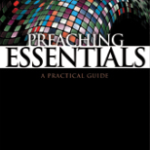Blessed is the man who finds wisdom, the man who gains understanding, for she is more profitable than silver and yields better returns than gold. She is more precious than rubies; nothing you desire can compare with her. Long life is in her right hand; in her left hand are riches and honor. Her ways are pleasant ways, and all her paths are peace. She is a tree of life to those who embrace her; those who lay hold of her will be blessed.
Proverbs 3:13-18
A friend asked me a great question regarding this passage. “Why is ‘wisdom’ a her in the Bible?” The grammatical answer is “wisdom” is a feminine noun in both Hebrew and Greek, so if a biblical writer anthropromorphizes wisdom, it is a she. Anthropromorphism is putting human characteristics on something that is not human. My friend came up with a great example. In the animated movie Beauty and the Beast, the candlestick was male, the tea cup was female, etc.
A decent answer with a great illustration, but it only got me so far. The next question was, “Why is wisdom a feminine noun in both Hebrew and Greek?” I love people who really know how to make me dig for answers!
Perhaps “wisdom” is feminine for the same reason “frog” is feminine in French, that is just the way the language formed. Another way to look at it is that it takes maleness and femaleness to reflect the attributes of God. Humans were created male and female in the image of God, who is neither male nor female (Gen. 1:27). Let’s stick to Greek for examples. God is wisdom (Luke 11:49 feminine). God is father (Matt. 6:9 masculine). God is love (1 John 4:8 feminine). God is lord (Rev. 17:14 masculine). God is peace (Eph. 2:14 feminine). God is Jesus, Messiah, and Son (Act 9:20 masculine). God is light (1 John 1:5 neuter). God is God (masculine).
It is we humans that have gender, so we try to understand God that way, but that is backward thinking. We should not try to understand God in light of who we are, but instead we should understand ourselves in light of who God is. That is wise thinking.






